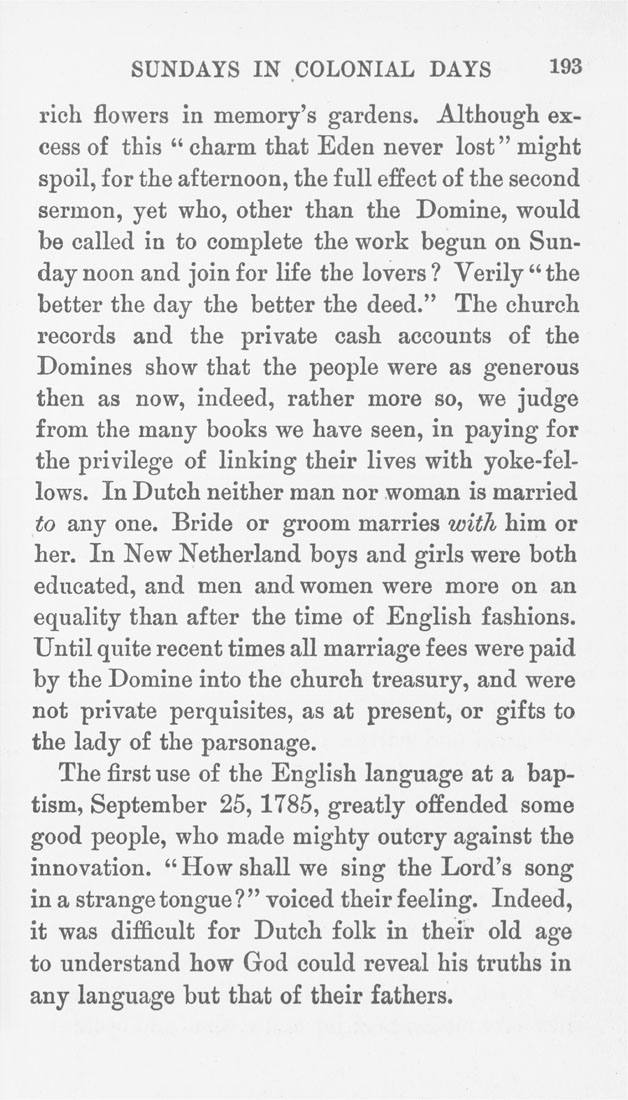SUNDAYS IN COLONIAL DAYS 193
rich flowers in memory's gardens. Although ex¬
cess of this " charm that Eden never lost" might
spoil, for the afternoon, the full effect of the second
sermon, yet who, other than the Domine, would
be called in to complete the work begun on Sun¬
day noon and join for life the lovers ? Verily " the
better the day the better the deed." The church
records and the private cash accounts of the
Domines show that the people were as generous
then as now, indeed, rather more so, we judge
from the many books we have seen, in paying for
the privilege of linking their lives with yoke-fel¬
lows. In Dutch neither man nor woman is married
to any one. Bride or groom marries with him or
her. In New Netherland boys and girls were both
educated, and men and women were more on an
equality than after the time of English fashions.
Until quite recent times all marriage fees were paid
by the Domine into the church treasury, and were
not private perquisites, as at present, or gifts to
the lady of the parsonage.
The first use of the English language at a bap¬
tism, September 25,1785, greatly offended some
good people, who made mighty outcry against the
innovation. " How shall we sing the Lord's song
in a strange tongue ? " voiced their feeling. Indeed,
it was difficult for Dutch folk in their old age
to understand how God could reveal his truths in
any language but that of their fathers.
|








